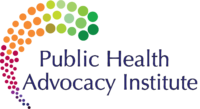On June 29, 2010, the Public Health Advocacy Institute conducted a webinar on the tobacco industry’s use of corporate social responsibility rhetoric and tactics to try to improve its image, while still maintaining an emphasis on personal responsibility.
Tobacco companies use corporate social responsibility rhetoric and tactics to normalize their image and stave off further regulation and litigation by appearing to have improved their corporate behavior. Simultaneously, the industry uses the theme of personal responsibility to shift the onus for tobacco products\’ impact away from itself and back to the public.
A 60 minute Webinar entitled Tag! You’re It: How Big Tobacco Shifts Blame Back Onto the Public was broadcast on June 29, 2010 and is archived here. Power Point slides from the webinar are available here in PDF format.
Please check out our Issue Briefs here:
- THE TOBACCO INDUSTRY’S USE OF CORPORATE SOCIAL RESPONSIBILITY RHETORIC & TACTICS
- DENORMALIZATION OF TOBACCO INDUSTRY CORPORATE SOCIAL RESPONSIBILITY INITIATIVES
- SMOKING CESSATION PROGRAMS
- TOBACCO INDUSTRY “YOUTH SMOKING PREVENTION” PROGRAMS
- SECONDHAND SMOKE ACCOMMODATION STRATEGY
Topics covered by the webinar and issue briefs include:
- How the tobacco industry has strategically used corporate social responsibility rhetoric and tactics to normalize and improve its image and stave off further regulation and litigation.
- How the tobacco industry uses personal responsibility rhetoric to shift the onus for public health from corporations back to the public.
- Examples of specific programs and campaigns that have been used to shift blame from the industry to the public.
The tobacco industry uses various corporate social responsibility programs to convince the public that it has changed and become more responsive to concerns about health and its products’ negative impact on society.
For instance, under the guise of corporate social responsibility, the tobacco companies run “youth smoking prevention” programs to appear as if they are combating youth smoking, but in reality, tobacco companies deny that their pernicious, vigorous marketing has any effect on creating the problem and instead focus solely on putting more responsibility on parents and children. These programs have been found to be ineffective in preventing or diminishing youth smoking, perhaps by design, but they do introduce another generation of smokers to a tobacco industry with an improved image.
The industry’s secondhand smoke PR campaigns denied the inherent dangers of exposure to its products and instead made the issue one of “courtesy” and “accommodation,” once again shifting the responsibility away from the manufacturers to consumers and the general public. Tobacco control advocates can use these findings to denormalize the tobacco industry through counter-marketing campaigns and to deny it the legitimacy it seeks through its corporate social responsibility shell game.
Tobacco company sponsored smoking cessation information programs try to shift the responsibility to smokers, most of whom became addicted to their products as children. Meanwhile, the companies never discuss any efforts to make their products less addictive.
